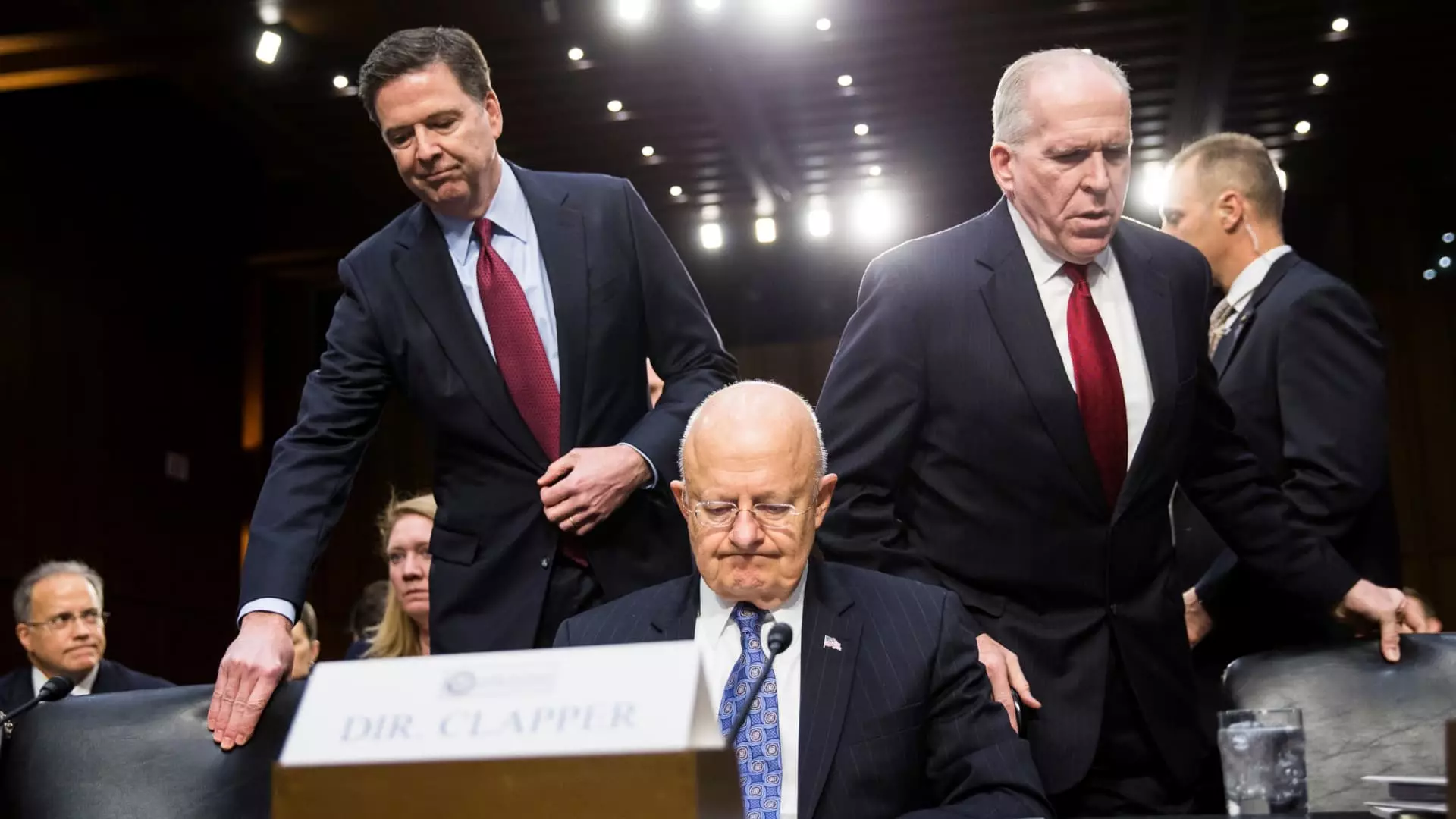The ongoing investigation into former intelligence leaders reflects a troubling pattern of political interference disguised as legal action. While the Justice Department cloaks its intentions in silence, the implications are unmistakable: the pursuit of personal vendettas and ideological retribution is replacing genuine accountability. Such actions threaten the integrity of American institutions, distorting the rule of law into a weapon wielded for political advantage. This climate fosters suspicion and erodes public trust—crucial elements in a healthy democracy—by conveniently targeting figures associated with political opponents or controversial moments in recent history.
Selective Justice: The Double Standard at Play
What stands out most starkly in this saga is the inconsistency of justice. Former officials like James Comey and John Brennan, who once operated within the corridors of power, are now under scrutiny for activities that, if pursued equally, would extend to a wide swath of political figures across the spectrum. Yet, the two are chosen as primary targets, signaling a bias that undermines the principle of equal accountability. If the goal truly is to seek the truth, why are investigations selectively initiated based on political convenience rather than evidence? The use of federal resources to revisit past decisions—some of which have already been scrutinized and declassified—seems more like political theater than a pursuit of justice.
Weaponized Investigations and the Erosion of Democratic Norms
The politicization of law enforcement agencies like the FBI and the Justice Department is not new but has been escalated to dangerous heights in recent years. The fact that investigations into figures associated with the previous administration are seemingly fueled by partisanship rather than concrete evidence reflects a breakdown in institutional independence. When internal reviews, congressional inquiries, and special counsels are employed primarily to dig up damaging material for political gain, trust in these institutions diminishes. This weaponization hampers their ability to function as fair arbiters of justice and fosters a corrosive atmosphere where accusations are weaponized to silence dissent or reverse electoral outcomes.
Impact on Public Trust and Democratic Stability
The broader consequence of such politically charged investigations is the fraying of democratic norms—an erosion that can lead to chaos and cynicism among the populace. Citizens come to see law enforcement and justice agencies as tools of partisan struggle, rather than balanced entities seeking the truth. This perception feeds the dangerous narrative that the system is rigged, which, in turn, fuels political violence and civil unrest. The damage is compounded when such investigations appear to target specific individuals based on their prior roles or allegiances rather than on clear evidence of wrongdoing. The fabric of democratic accountability is stretched thin, risking a future where loyalty to political factions takes precedence over legitimate justice.
The Broader Political Context and Its Detrimental Effects
This narrative of political overreach must be understood within a broader context: an era where the boundaries of fairness and impartiality are blurred. When administrations—regardless of their political stripe—use investigations as tools to settle scores or dismantle opposition, it damages the principle that justice applies equally to all. The selective scrutiny of figures like Brennan and Comey not only politicizes the judiciary but also sets a precedent that future administrations might exploit. This cycle of suspicion and retaliation threatens to destabilize the sense of neutrality that underpins American governance, making it more difficult to address real issues with the seriousness they deserve.
The Need for Center-Right Accountability
A genuinely healthy democracy requires centrist voices to call out such abuses of power and advocate for an impartial justice system. While it’s essential to hold individuals accountable for misconduct, it is equally important that justice remains unbiased and rooted in evidence rather than political calculations. The current trend of targeting former officials based on circumstantial evidence and past statements fuels partisan division and forgets that the foundation of justice is fairness—apolitical, consistent, and transparent. Without a conscious effort to restore balance and limit political interference, the U.S. risks falling into a cycle where law becomes a weapon for winners to punish losers, rather than an instrument for safeguarding democracy.
The defense of impartial justice amid political turbulence is more urgent than ever. Leaders within the legal system must resist the temptation to weaponize investigations and instead serve as guardians of fairness. Equally, political actors must recognize that genuine stability is rooted in respecting the rule of law rather than abusing it for partisan gain. Only by doing so can the nation hope to preserve the democratic ideals of accountability, fairness, and trust—cornerstones that have long defined the American experiment.

